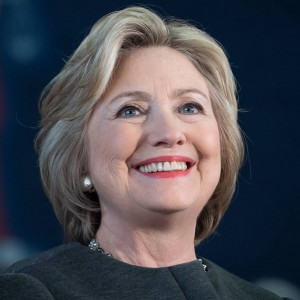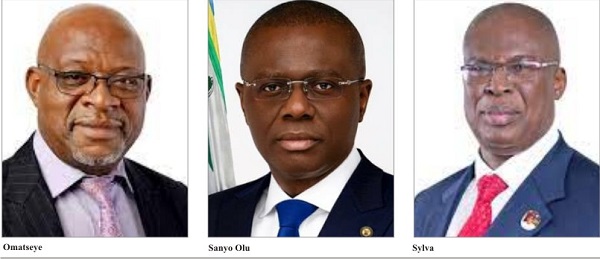The Emergence Of The Sisterhood

By Kingsley Anaroke with agency report
‘If you want something done ask a woman; if you want something said ask a man.’-Margaret Thatcher
Are women about to rule the world? You might think so if you’ve been watching the schoolboy squabbles over Brexit that felled several of Britain’s leading political men in the wake of the EU referendum. You might get the same impression if you are watching the race for the White House, where the male Republican candidate threatens to upend the international order while his female Democratic rival offers the only chance of continuity, if not sanity. You might also get the same impression with the seeming dominance of the leadership space by women from politics to the corporate world, globally in recent times.
However, there is little hope on how much impact this will have in turning the around the fortunes of enterprises, economies and deepen the participation of women in governance. There is an age-long tested axiom that women are their own enemies, and this seems a barrier to effective mentorship among them. From developments, however, the world is sure awaiting the emergence of the sisterhood.
Many nations have elevated women to their highest offices, yet the United States and Nigeria have been slow to do same, with Clinton’s nomination coming exactly 100 years after Jeannette Rankan became the first woman elected to the US congress.
In fact, Theresa May, the grown-up of British politics, was only catapulted to the top of both the Conservative party and the government recently after her male colleagues spectacularly got self-destructed. And if Hillary Clinton, the first female Democratic nominee, is elected president in November, it will be historic and a defining thread in global gender politics and America’s political history, perhaps because Donald Trump her Republican candidate rival proved too outrageous even for those yearning for someone outrageously different.
But imagine Mrs. Clinton in the Oval Office, Mrs. May in Downing Street, with Angela Merkel in charge in Germany, Christine Lagarde at the helm of the International Monetary Fund, and probably a female secretary-general of the UN by the end of the year, and the world suddenly looks quite different.
In Britain, the march of the sisterhood has been accelerated by the EU referendum. Angela Eagle, a chess champion and former shadow business secretary, is challenging Jeremy Corbyn for the leadership of the opposition Labour party. Though her chances look slim, she is right to say “it’s about time” a party that purports to be a champion of equality “had a woman leader”. Scotland has two impressive women at the top: Nicola Sturgeon, the Scottish National party first minister, and Ruth Davidson, leader of the Scottish Conservatives. Northern Ireland has Arlene Foster as first minister.
So what, you might ask. Look around the world and these women are the exception rather than the rule. UN data about women’s participation highlight the gender inequality. Figures from 2015 show that only 22 per cent of all national MPs were female, disappointingly slow progress from about 11 per cent two decades earlier. The same data show that 11 women served as heads of state and 10 as heads of government. Women lag far behind when it comes to cabinet positions, too: only 17 per cent of ministers are women, most of them in charge of areas such as education and the family.
Researchers find that the gender gap in politics is exacerbated by entrenched attitudes. Women are less interested in politics and less exposed to political information. Female politicians also suffer from stereotyping, with disproportionate attention paid to their appearance.
They are subjected to questions that are irrelevant to men and should be equally irrelevant to women, says Professor Donatella Campus of the University of Bologna. If they have children, they are asked whether they have time for politics; if they do not have children, they are deemed too ambitious. Sometimes women fall for the stereotype, as illustrated by the dramatic downfall of Andrea Leadsom. Her leadership challenge to Mrs. May collapsed after she claimed that her rival, who has no children, had less of a stake in Britain’s future.
True, women leaders are not always good for women. Margaret Thatcher, the first woman elected UK prime minister, used to say: “If you want something done ask a woman; if you want something said ask a man.” But she was no feminist and she appointed only one woman to her cabinet. Ms Merkel has done better but she, too, has been criticized for not putting women’s issues top of her agenda. Mrs. Clinton, meanwhile, is passionately disliked by younger women.
Mrs. May, however, promises to be different and her record suggests she could succeed. She is co-founder of Women2Win, a campaign to elect more Conservative women. Despite the scale of her task to unite a bitterly divided country and party while charting the UK’s future relationship with Europe, she has already indicated that women’s political advancement will not be ignored on her watch. And, amid increasing speculation about the composition of her cabinet, she has let it be known that she will appoint women to senior positions.








